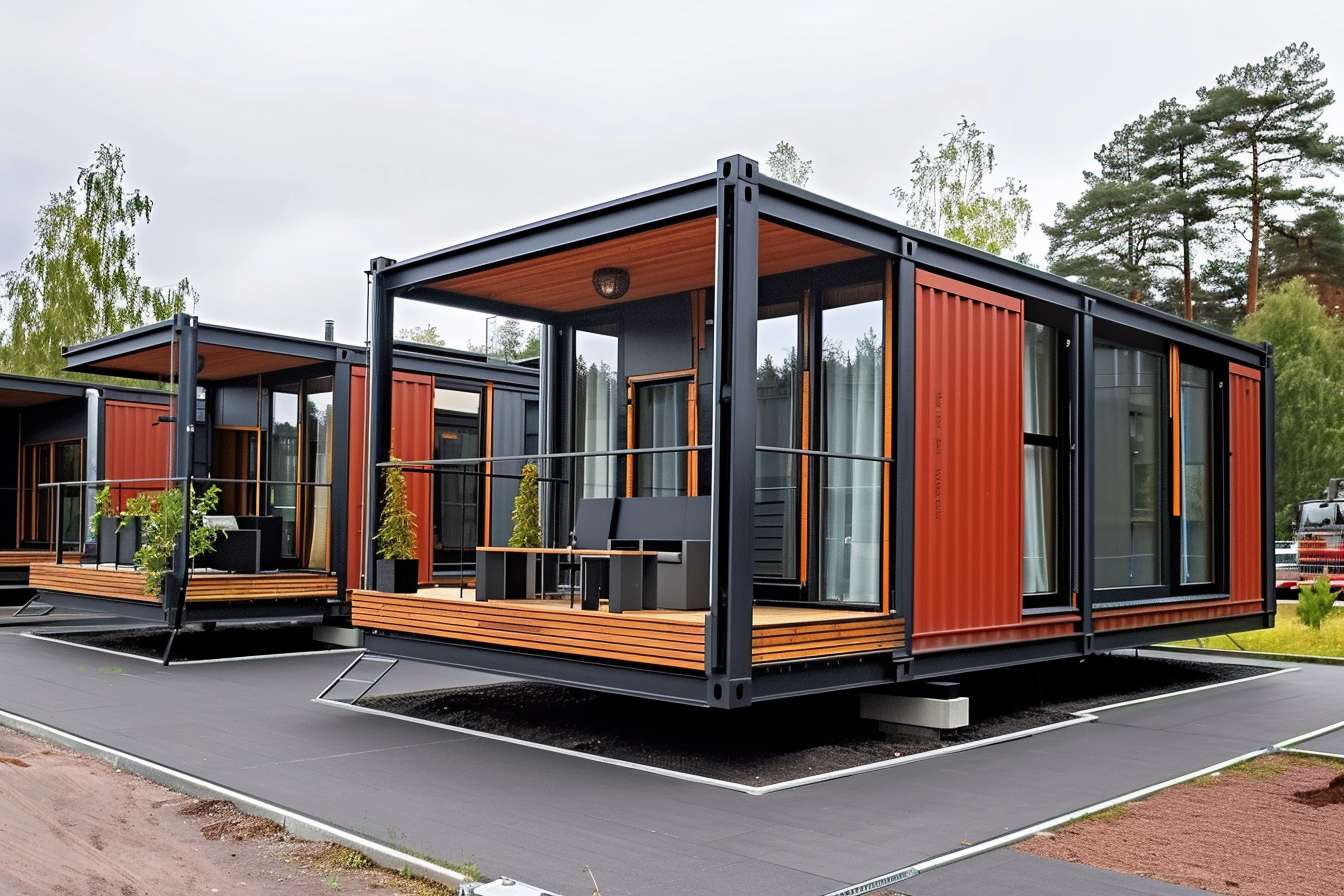Shipping Container Homes: A Modern Approach to Sustainable Living
In recent years, shipping container homes have gained tremendous popularity worldwide, offering a unique blend of affordability, sustainability, and style. This innovative housing solution repurposes decommissioned shipping containers into comfortable living spaces, challenging traditional notions of home construction. As the housing market in Nigeria continues to evolve, many are turning their attention to these versatile structures as a potential solution to urban housing challenges.

Why are container homes gaining popularity worldwide?
The rise of container homes can be attributed to several factors. Firstly, they offer a cost-effective alternative to traditional housing, with significantly lower construction costs and shorter build times. Secondly, the use of recycled shipping containers aligns with growing environmental concerns, appealing to eco-conscious individuals seeking sustainable living options. Additionally, the modular nature of these homes allows for flexibility in design and easy expansion, making them adaptable to various needs and locations.
What are the pros and cons of living in a modern container home?
Container homes come with a unique set of advantages and challenges. On the positive side, they are incredibly durable, resistant to extreme weather conditions, and can be easily transported. They also offer a modern, minimalist aesthetic that appeals to many. However, potential drawbacks include limited interior space, the need for proper insulation to regulate temperature, and potential zoning restrictions in some areas. It’s crucial to weigh these factors carefully when considering a container home.
How affordable and sustainable are container homes?
One of the most compelling aspects of container homes is their affordability. The base structure of a shipping container is significantly cheaper than traditional building materials, potentially reducing overall construction costs by 20-30%. In terms of sustainability, repurposing these containers reduces waste and minimizes the need for new building materials. Many container homes also incorporate eco-friendly features like solar panels and rainwater collection systems, further enhancing their environmental credentials.
Can a shipping container be customized into a dream home?
Absolutely! The versatility of shipping containers allows for extensive customization. From cutting out windows and doors to adding multiple levels or connecting several containers, the possibilities are vast. Interior finishes can range from rustic to ultra-modern, accommodating various tastes and preferences. Many homeowners work with architects and designers to create unique layouts that maximize space efficiency while reflecting their personal style.
What should you know before buying or building a container house?
Before embarking on a container home project, it’s essential to consider several factors. First, check local building codes and zoning laws to ensure container homes are permitted in your area. Research the condition and history of the containers you plan to use, as some may have been treated with harmful chemicals. Consider the climate of your location and plan for appropriate insulation and ventilation. It’s also crucial to work with professionals experienced in container home construction to ensure structural integrity and safety.
How does the cost of container homes compare in Nigeria?
In Nigeria, the cost of container homes can vary significantly based on factors such as location, size, and level of customization. However, they generally offer a more affordable housing option compared to traditional brick-and-mortar homes.
| Home Type | Estimated Cost Range (NGN) | Key Features |
|---|---|---|
| Basic Container Studio | 2,000,000 - 3,500,000 | Single container, minimal amenities |
| Mid-Range Container Home | 4,000,000 - 7,000,000 | 2-3 containers, standard finishes |
| Luxury Container Home | 8,000,000 - 15,000,000+ | Multiple containers, high-end finishes |
Prices, rates, or cost estimates mentioned in this article are based on the latest available information but may change over time. Independent research is advised before making financial decisions.
Container homes represent a innovative approach to housing that addresses issues of affordability, sustainability, and style. While they may not be suitable for everyone, they offer a compelling alternative to traditional housing options, particularly in urban areas facing housing shortages. As the concept continues to evolve and gain acceptance, we may see more of these unique structures dotting the Nigerian landscape, providing creative solutions to housing challenges while promoting environmental consciousness.



